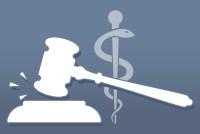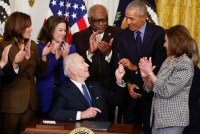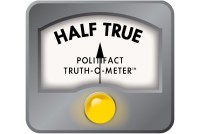La decisión podría afectar los exámenes de detección sin copago y servicios preventivos similares que la mayoría de los estadounidenses con seguro tienen como parte de sus planes de salud.
Judge’s Decision Would Make Some No-Cost Cancer Screenings a Thing of the Past
A U.S. District Court ruling overturned the section of the Affordable Care Act that makes preventive health services — from colonoscopies to diabetes screenings and more — available at no cost to consumers.
Se acaba la era de las vacunas y las pruebas gratuitas contra covid. ¿Quién va a pagar?
Las personas podrán obtener estas vacunas a bajo costo o sin costo mientras duren los suministros del gobierno. Luego, dependerá de su seguro de salud.
Era of ‘Free’ Covid Vaccines, Test Kits, and Treatments Is Ending. Who Will Pay the Tab Now?
Insurers, employers, and taxpayers will all be affected as drug manufacturers move these products to the commercial market.
Numbers Don’t Lie. Biden Kept His Promise on Improving Obamacare.
KHN has teamed up with our partners at PolitiFact to monitor 100 key promises made by Joe Biden during the 2020 presidential campaign — including those surrounding the Affordable Care Act.
Nueva herramienta ayudaría a comparar costos de hasta 500 servicios médicos
Desde el 1 de enero, las aseguradoras y los empleadores que ofrecen planes de salud deben proporcionar calculadoras en línea para que los pacientes obtengan estimaciones detalladas de lo que deberán por una variedad de servicios y medicamentos, teniendo en cuenta sus deducibles y copagos.
Want a Clue on Health Care Costs in Advance? New Tools Take a Crack at It
Another effort to make upfront cost comparisons possible in an industry known for its opaqueness: an online tool for consumers to get some idea of what they may pay for medical care.
Employers Use Patient Assistance Programs to Offset Their Own Costs
Some insurers and employers are tapping into assistance programs meant for individual patients. The concern: Some costly drugs could be harder for patients to access.
¿Comprando seguro de salud de ACA? Aquí, lo nuevo de este año
Comprar ahora significa tener cobertura vigente a partir del 1o de enero de 2023. Aunque gran parte de los planes permanecen iguales año tras año , hay algunos cambios que los consumidores deben tener en cuenta.
Shopping for ACA Health Insurance? Here’s What’s New This Year
Consumers may find relief in some key changes made by Congress and the Biden administration, although other issues remain unsettled.
La nueva generación de medicamentos para la pérdida de peso es prometedora, pero tiene un precio
Algunos pacientes, según los especialistas en medicina de la obesidad, experimentan una disminución de la presión arterial, un mejor control de la diabetes, menos dolor en las articulaciones y un mejor sueño gracias a estos nuevos tratamientos.
New Generation of Weight Loss Medications Offer Promise — But at a Price
People now have at their disposal more medicines that are effective at reducing weight, but none can counter obesity alone. One big problem: Insurance coverage remains spotty, and the costly drugs may be needed long term.
Índice de masa corporal: una medida errónea del peso que afecta el tratamiento de la obesidad
Los tratamientos actuales para la obesidad y los trastornos alimentarios, y sus costos, muchas veces se basan en esta medida que no está amparada en la ciencia.
El humo de los incendios forestales perjudica más la salud en lugares donde faltan especialistas
Los miembros de la tribu local y otros residentes de la zona se encuentran entre los millones de personas del país que este año experimentarán una mala calidad del aire debido a los incendios forestale
BMI: The Mismeasure of Weight and the Mistreatment of Obesity
The human body mass index — a simple mathematical equation — is tied to a measure of obesity invented almost 200 years ago. On the downside, it can stand between patients and treatment for weight issues. It particularly mismeasures Black women and Asians.
Climate Change Magnifies Health Impacts of Wildfire Smoke in Care Deserts
Smoke- and ash-filled air can trigger or exacerbate severe respiratory conditions. But the medical specialists who treat these illnesses are often scarce where they are most in need.
Many Preventive Medical Services Cost Patients Nothing. Will a Texas Court Decision Change That?
A federal judge in Texas issued a decision this week that affects the Affordable Care Act. It says one way that preventive services are selected for no-cost coverage is unconstitutional.
Rapper Fat Joe Says No One Is Making Sure Hospitals Post Their Prices
A TV and social media ad offers a reason to check on the enforcement of a sweeping rule that requires hospitals to post information about what they charge insurers and cash-paying patients.
Health Insurance Price Data: It’s Out There, but It’s Not for the Faint of Heart
Health insurers and self-insured employer plans are now required to post their negotiated rates for almost every type of medical service. But navigating through the trove of information is no easy task.
Tres cosas que hay que saber sobre la cobertura del seguro para abortos
Apenas una de las decenas de conflictos: el aborto puede estar cubierto por un plan de salud, pero si no hay proveedores disponibles, las pacientes no tienen acceso.



















